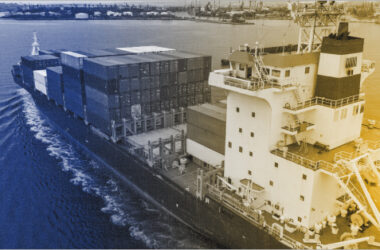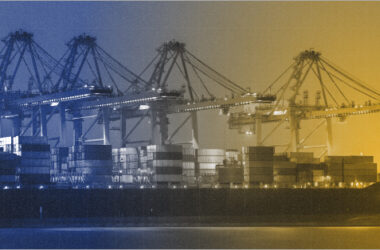Marine Insurance plays a crucial role in global trade by mitigating financial losses arising from risks associated with maritime and related transit. From damage to ships and loss of cargo to liabilities resulting from maritime accidents, a Marine Insurance Policy ensures businesses remain financially secure against unforeseen events.
As one of the world’s leading trading nations, India heavily relies on Marine Insurance to protect its shipping and logistics sectors. While the Marine Insurance Act, 1906, originally enacted by the British Parliament, laid the groundwork for modern Marine Insurance, India’s Marine Insurance Act, 1963 is the prevailing legislation that governs Marine Insurance today. This blog explores the influence of the 1906 Act, key provisions of the 1963 Act, and how Marine Insurance policies operate in India in the current landscape.
Marine Insurance Policy: A Brief Overview
A Marine Insurance Policy is a contractual agreement where an insurer compensates the policyholder against financial losses caused by maritime perils. These perils include damages to ships, loss or damage to cargo, and third-party liabilities, ensuring continued commercial operations with reduced risk exposure.
Key Risks Covered Under a Marine Insurance Policy
- Natural disasters – Cyclones, tsunamis, hurricanes, earthquakes, and floods.
- Accidents and collisions – Sinking, capsizing, and crashes with other vessels.
- Theft, piracy, and hijacking – Growing threats to cargo and crew security.
- Fire and explosion – Major risks that can completely destroy ships and goods.
- War, terrorism, and strikes – Protection against losses caused by political instability and conflicts.
Key Stakeholders in Marine Insurance
- Insurer – The insurance company providing risk coverage.
- Assured – The person or entity purchasing insurance for financial security.
- Underwriters – Professionals within insurance companies who assess risks and determine terms and pricing.
- Loss Payee – The designated party entitled to claim benefits in case of an incident.
- Brokers and Agents – Intermediaries facilitating Marine Insurance transactions.
The Marine Insurance Act, 1906 and Its Influence
The Marine Insurance Act, 1906, enacted by the British Parliament, codified long-standing principles of Marine Insurance that had developed through case law. While the Act is not directly applicable in India, it significantly influenced India’s Marine Insurance Act, 1963, which forms the current legal foundation for Marine Insurance in the country.
Key Objectives of Marine Insurance Legislation
- To establish a standardised legal framework for Marine Insurance contracts.
- To define essential principles such as insurable interest, indemnity, and utmost good faith.
- To regulate procedures for claims, warranties, and losses.
- To provide a structured approach to risk assessment and claim settlements.
Applicability of the Marine Insurance Act, 1963 in India
Post-independence, India adopted the Marine Insurance Act, 1963, which mirrors the structure and spirit of the 1906 Act, with necessary adaptations to suit Indian legal and commercial requirements. The Insurance Regulatory and Development Authority of India (IRDAI) oversees marine insurance regulation today, ensuring transparency, solvency, and fair practices in the sector.
Key Provisions and Sections of the Marine Insurance Act, 1963
Below are the relevant provisions and principles of the Marine Insurance Act, 1963, which form the legal backbone of Marine Insurance practices in India:
1. Section 3 – Marine Insurance Defined
Defines Marine Insurance as a contract under which an insurer indemnifies the policyholder against losses caused by maritime perils. It includes risks related to ship damage, cargo loss, and third-party liabilities.
2. Section 4 – Types of Marine Insurance Policies
Specifies different types of Marine Insurance:
- Hull Insurance (for ships)
- Cargo Insurance
- Freight Insurance
- Liability Insurance
Policies can be voyage-based, time-based, or mixed, depending on duration and scope.
3. Section 7 – Insurable Interest
A person must have a legal or financial interest in the subject matter (e.g., ship, cargo, freight) to purchase insurance. This ensures that compensation is only paid for actual financial losses, discouraging speculative or fraudulent claims.
4. Section 19 – Doctrine of Utmost Good Faith (Uberrimae Fidei)
Both the insurer and the insured must disclose all material facts relevant to the contract. Non-disclosure or misrepresentation may lead to policy cancellation or claim denial.
5. Section 20 – Disclosure by the Assured
The insured must disclose every material circumstance known to them before the policy is concluded. This includes the condition of the vessel, nature of cargo, and known risks on the trade route.
6. Section 35 – Warranties in a Marine Insurance Policy
A warranty is a condition that must be strictly complied with. A breach may render the contract void from the time of breach.
Examples include a warranty of seaworthiness or compliance with specific safety protocols.
7. Sections 26–28 – Voyage and Time Policies
- Voyage Policy: Covers a single journey from port A to port B.
- Time Policy: Covers for a fixed duration (usually up to 12 months).
- Mixed Policy: Combines aspects of both voyage and time-based coverages.
8. Section 41 – Change of Voyage
If a ship deviates from the agreed route without lawful excuse, the insurer may be discharged from liability for losses occurring after the deviation. This helps prevent the moral hazard of straying from safer routes without accountability.
9. Sections 55–57 – Classification of Losses
- Actual Total Loss: Occurs when the insured item is completely destroyed or irretrievably lost.
- Constructive Total Loss: When the cost of recovering or repairing the ship or cargo exceeds its insured value.
- Partial Loss: When only part of the insured subject is damaged.
10. Section 55 – Proximate Cause Principle
Only losses proximately caused by an insured peril are covered.
If the proximate (dominant, effective) cause of loss is outside the policy’s coverage, the claim may be rejected.
This is a key principle used during claims assessment.
11. Section 67 – Measure of Indemnity
Specifies how compensation is calculated:
- Based on agreed insured value or market value.
- Aims to place the insured in the same financial position as before the loss — no more, no less.
12. Subrogation (General Principle)
Although not explicitly titled in a standalone section, subrogation is a principle recognised in Indian marine insurance law. It allows the insurer to recover losses from third parties responsible for damage after compensating the insured.This helps insurers control fraud and reduce claim costs.
Types of Marine Insurance Policies in India
Understanding the different types of Marine Insurance is essential for selecting the right coverage. Here are the main types available in India:
- Marine Open Insurance
- Covers goods during transit by sea, air, rail, or road.
- Offers continuous coverage for all shipments under one policy
- Protects the cargo against risks like theft, damage and loss throughout the transit journey
- Simplifies the process and saves time by ensuring seamless protection for all shipments under a single policy
2. Single Transit Insurance
- Covers a specific shipment or consignment during a single journey
- Offers financial protection against risks such as damage, loss or theft of goods during the journey from the starting point to the final destination
- Ideal for shipping companies and vessel owners who ship goods occasionally and do not need continuous coverage.
3. Sales Turnover Policy
- Here, businesses insure their estimated annual sales turnover, which becomes the sum insured.
- Ensures coverage for all transits needed to achieve this estimated turnover
- Premiums are calculated based on the total sales turnover, offering cost-effective coverage for all transits.
How Marine Insurance Works in India
1. Purchasing a Marine Insurance Policy
- Businesses assess their exposure and choose the appropriate policy.
- Policies are tailored to cargo type, trade route, and shipping frequency.
- Premiums are based on risk assessment, vessel type, past loss experience, and safety measures taken.
2. Marine Insurance Claim Process
- Prompt notification of loss to the insurer.
- Submission of documents: survey reports, shipping invoices, damage assessments.
- Insurer initiates investigation and loss verification.
- Claim settlement based on policy terms and indemnity calculations.
Final Thoughts
The Marine Insurance Act, 1906 may no longer be directly applicable in India, but it continues to influence global Marine Insurance norms and has significantly shaped India’s own Marine Insurance Act, 1963. This framework provides essential legal structure to a sector that underpins international commerce.
As India’s trade volumes grow and maritime infrastructure advances, Marine Insurance plays a pivotal role in ensuring financial resilience for businesses. Whether you are a shipowner, exporter, or logistics provider, understanding marine insurance laws can help you optimise risk management and safeguard operations in turbulent waters.








